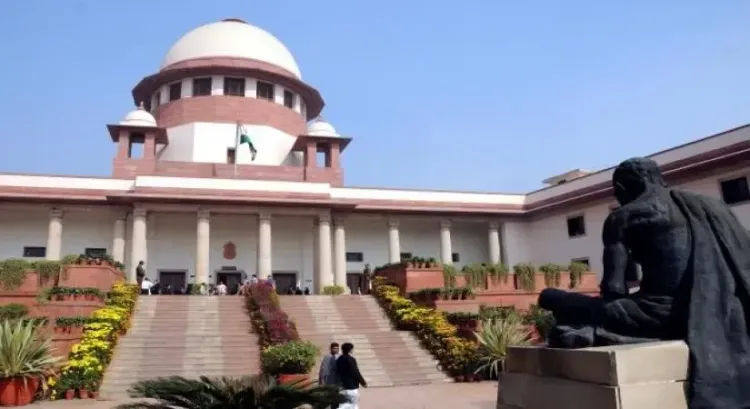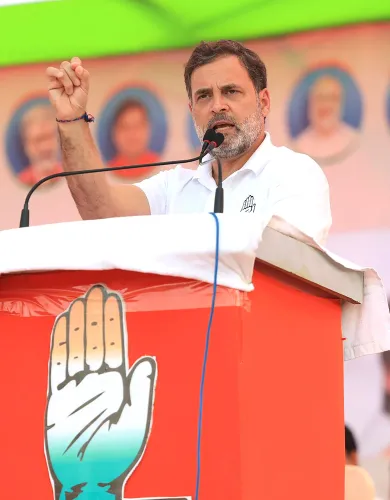Supreme Court Clarifies: Non-Payment of Maintenance Does Not Constitute Criminal Proceedings

New Delhi, Jan 13 (NationPress) The Supreme Court has determined that even if failing to comply with a maintenance payment order results in penal actions, such actions will not be classified as criminal proceedings.
"If non-compliance with an order for payment of maintenance leads to penal consequences, similar to other decrees from a Civil Court, such actions cannot be regarded as criminal proceedings. The terminology of maintenance proceedings initiated under the Code of Criminal Procedure (CrPC), as outlined therein, cannot definitively characterize the nature of these proceedings," the court stated.
In a comprehensive judgement, the apex court referenced the 41st Report of the Law Commission of India, which noted that the primary reason for including provisions related to the maintenance of wives and children—a civil matter—in the Criminal Procedure Code was to offer a faster and more cost-effective remedy than what is available in civil courts.
The court added that the Law Commission highlighted that this provision aims to prevent starvation and vagrancy, which can lead to criminal activity.
Additionally, the SC cited a prior judgement, indicating that the goal of maintenance proceedings is not to penalize an individual for neglect but to avert the vagrancy and poverty of a deserted wife by ensuring she has access to food, clothing, and shelter through an expedited remedy.
It further asserted: "Section 125 Cr.P.C. is a tool of social justice, specifically designed to safeguard women and children, aligning with the constitutional framework of Article 15(3) supported by Article 39 of the Constitution. The aim of this provision, both historically and presently, is to improve the financial situation of destitute wives, children, and now, parents who must fend for themselves."
Section 125(1) Cr.P.C. stipulates that if a person with sufficient means neglects or refuses to support his wife or his legitimate or illegitimate children, or his parents who are unable to support themselves, a first-class Magistrate may, upon proof of such neglect or refusal, direct that person to pay a suitable monthly allowance for their maintenance.
"Importantly, Section 125 Cr.P.C. has historical roots. It is consistent with Section 488 of the previous Code of Criminal Procedure of 1898," stated a bench comprising CJI Sanjiv Khanna and Justice Sanjay Kumar.
The 28-page judgement affirmed the wife's entitlement to maintenance under Section 125 Cr.P.C., indicating that the mere issuance of a decree for restitution of conjugal rights at the husband's request and the wife's subsequent non-compliance would not, by itself, lead to disqualification under Section 125(4) Cr.P.C.
"In any case, a decree for restitution of conjugal rights obtained by a husband, coupled with the wife's non-compliance, would not automatically determine her right to maintenance or the applicability of disqualification under Section 125(4) Cr.P.C," the apex court concluded.









